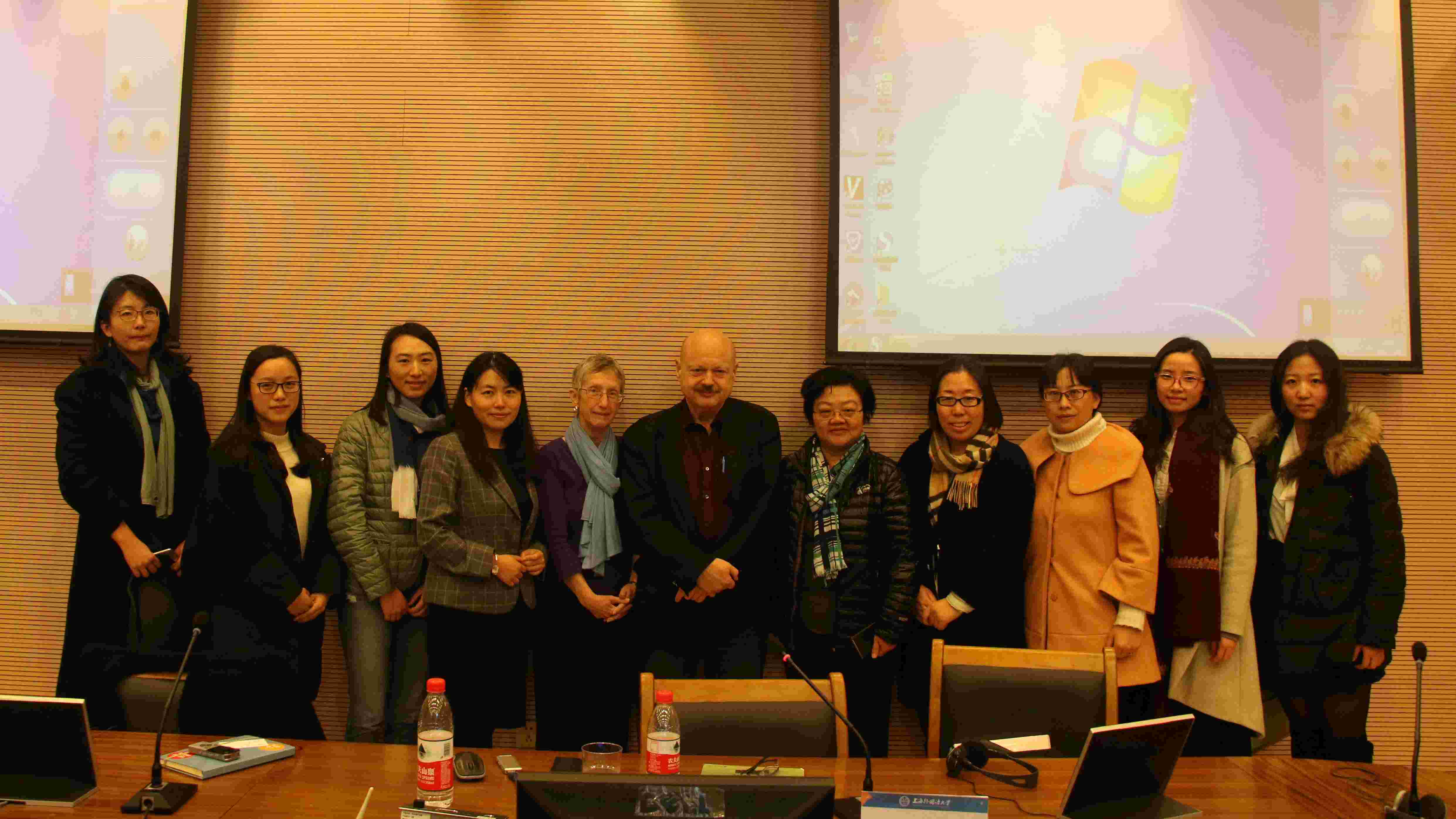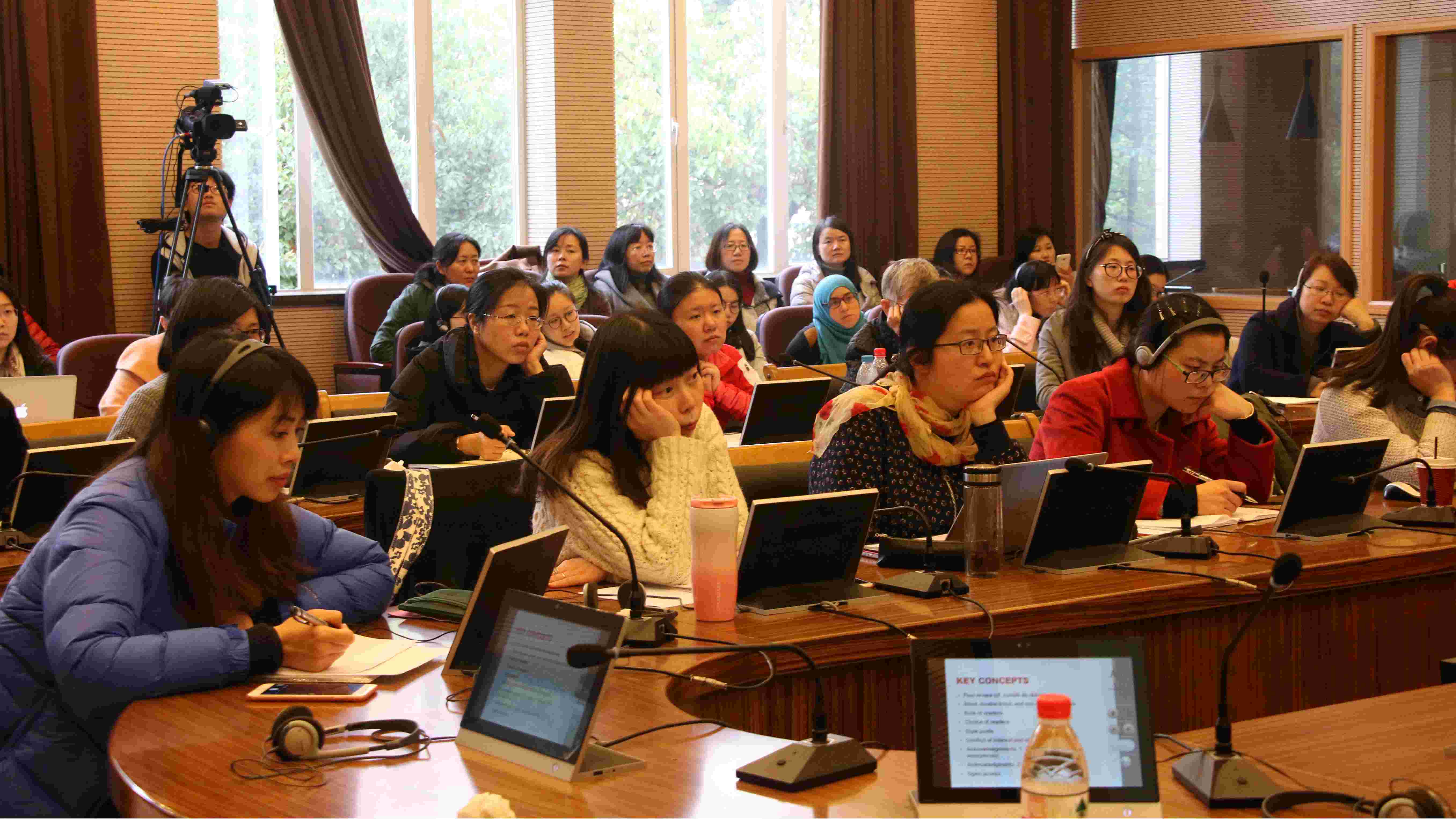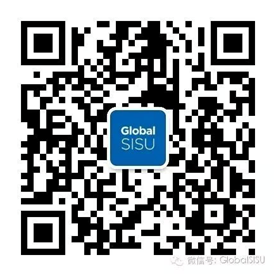A lecture on academic ethics and academic publication was given by Michael Herzfeld, professor of anthropology of Harvard University at Shanghai International Studies University (SISU) this March.
The lecture was part of one-week lecture series hosted by SISU's Faculty Development Center from Mar. 17 to 24 to faciltate research and academic writing for university faculty members.
Herzfeld emphasized during the lecture that plagiarism and misquotation, contrast to honesty and credit, were strictly forbidden in English academic writing and they will destroy scholars’ academic career. He added that plagiarism and misquotation were more likely to be found with the development of anti-plagiarism software in the Internet era.
For cheating, Herzfeld suggested to provide an opportunity for those involved to defend in the pursuit of objective and fair results besides protecting the whistleblowers. For plagiarism, he said he believes that pre-judgement was necessary to differ unintended behavior from the deliberate one before making specific treatment.
He then encouraged academic contributions from SISU young scholars. He said it is a quick access to gain visibility due to its large readers to publish articles on English mainstream journals. And the editors' strong risk awareness reduces the risk of involving plagiarism and other academic problems.
He added that editors often invite well-known experts in related field as reviewers, advice from whom are beneficial to improve research ability of young scholars.
In addition, Herzfeld introduced the double-blind peer review system mostly used in the United States, in which experts reviewed peers’ papers without knowing each other’s identity. This system is designed to allow scholars to respect each other and focus on the academic issues, rather than blindly pursuing academic scores.
He also suggested that contributors should prepare well in advance, including submitting to a suitable journal, refining their writing language, modifying basic errors such as grammar, symbols and so on.
Professor Herzfeld strongly advised that young scholars should adhere to the belief of academic independence instead of blindly catering to the existing theoretical framework and the philosophy of journals editor.






